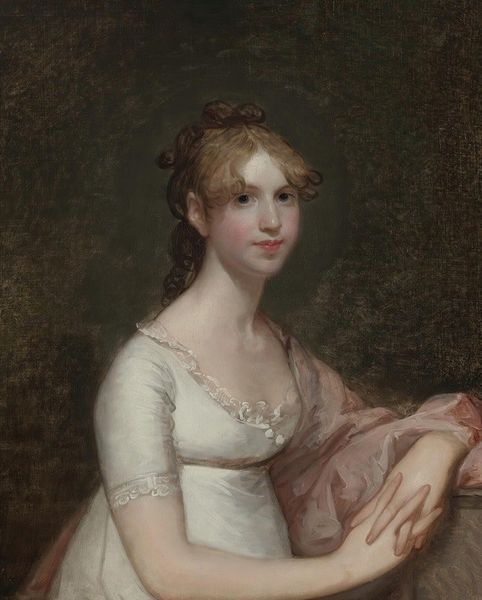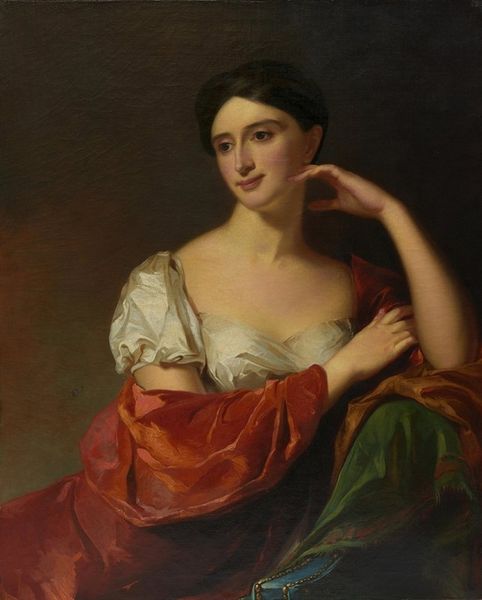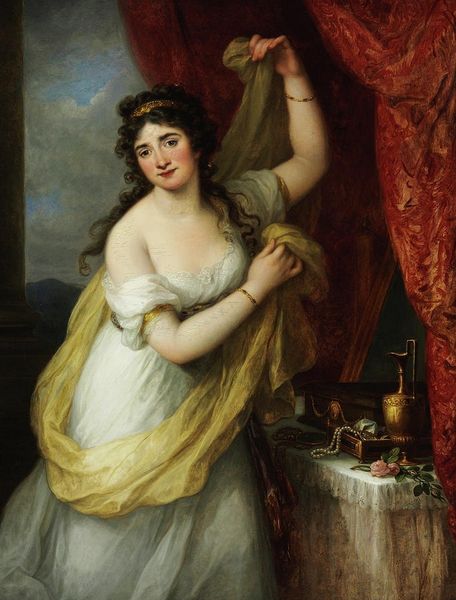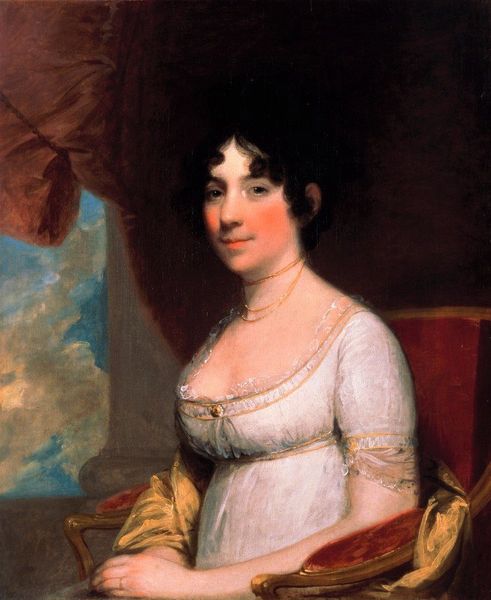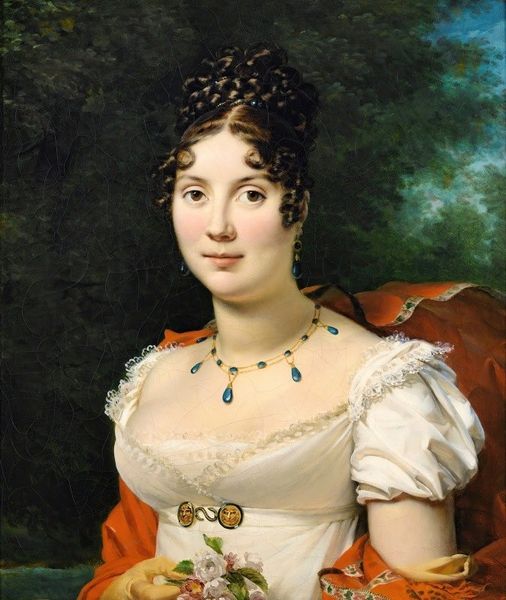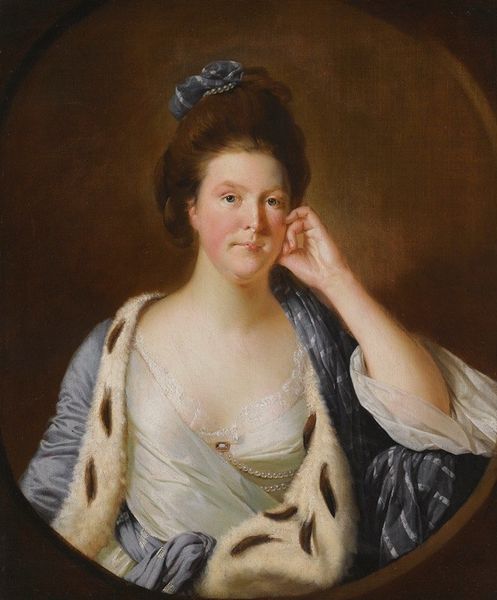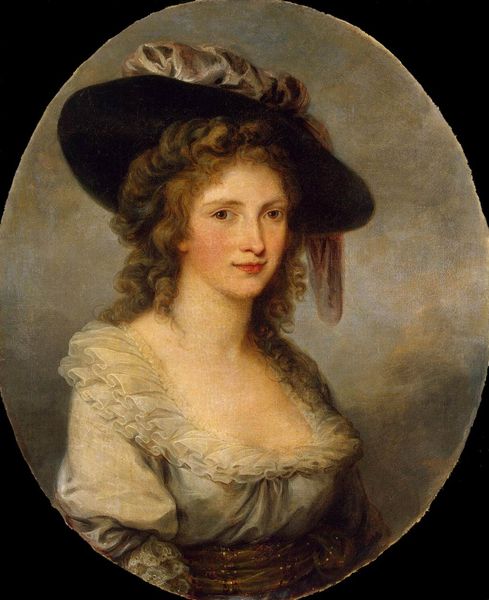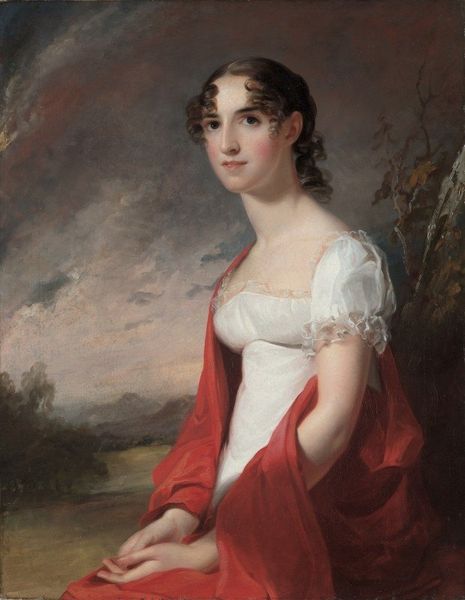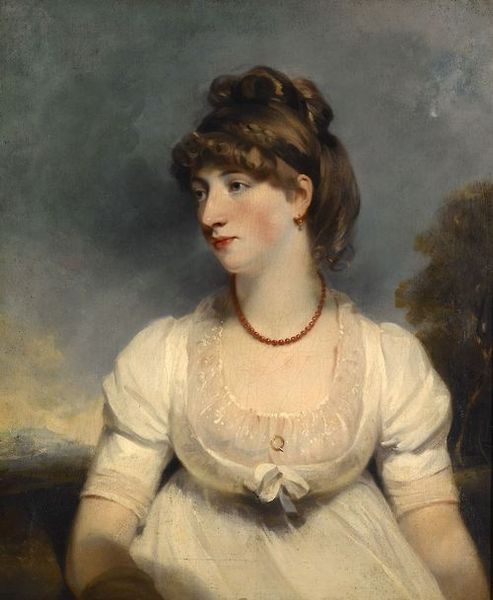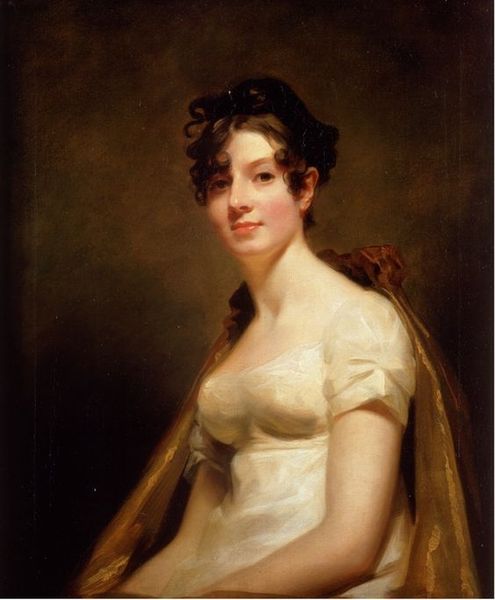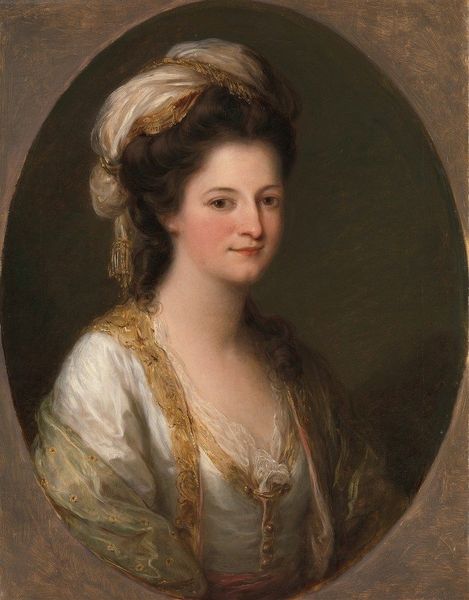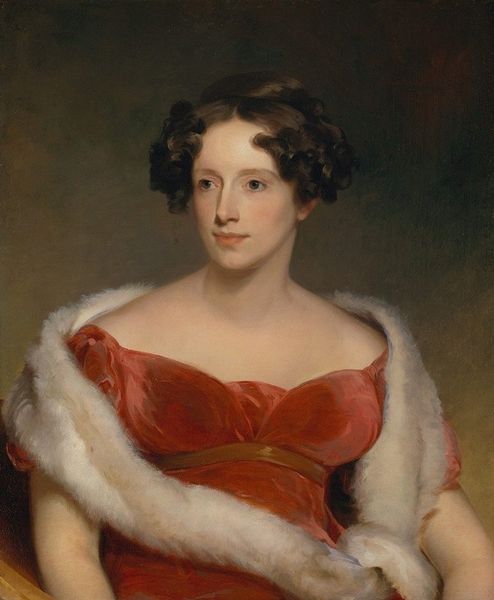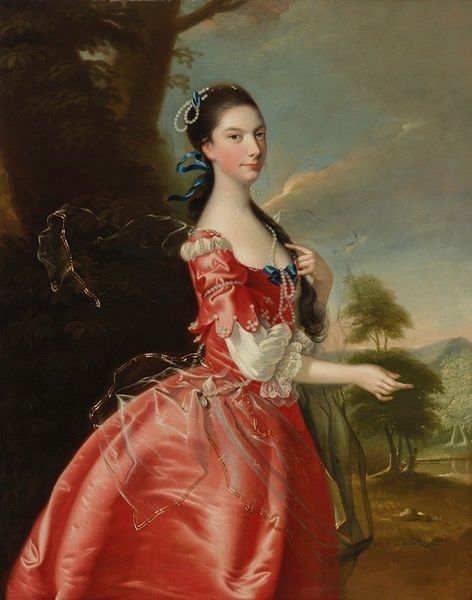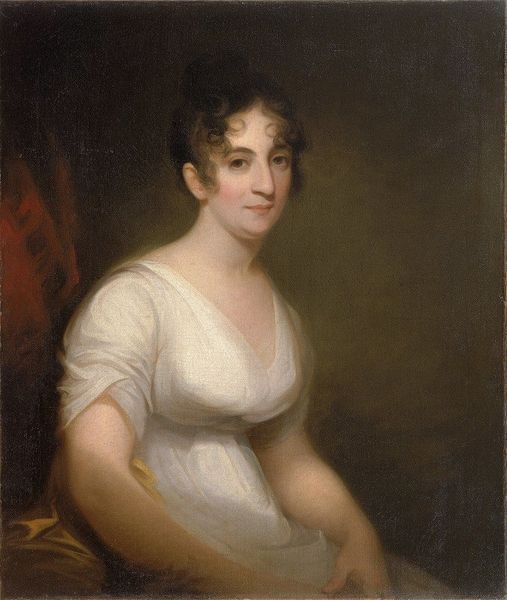
painting, oil-paint
#
portrait
#
figurative
#
neoclacissism
#
painting
#
oil-paint
#
figuration
#
academic-art
#
realism
Copyright: Public Domain: Artvee
Editor: Here we have Gilbert Stuart's "Portrait of a Young Woman," painted with oils sometime between 1802 and 1804. The painting depicts a woman with a rather serene expression as she appears to be in the middle of writing. What do you see in this piece, from your perspective? Curator: Structurally, the composition presents a tightly framed figure, concentrating the viewer’s attention on the sitter's face and hands. Notice how Stuart manipulates light. It gently models the woman's features, while the dark background creates a stark contrast, pushing her forward. The palette is restrained, with the delicate balance between warm and cool tones enhancing the skin's porcelain quality. Editor: I see what you mean about the light. It almost feels like she's illuminated from within. What do you make of the setting? It seems intentionally vague. Curator: Indeed. The indistinct background directs us away from any narrative specifics and focuses our attention instead on the formal qualities of the painting. The drape hints at an interior space, yet its lack of detail avoids distracting from the central figure. Furthermore, the painting embodies academic techniques, such as smooth brushwork, subdued colors, and emphasis on line. The artist employs those artistic choices to communicate an elevated perception of the subject and to display expertise in painting. How do you perceive the sitter’s garments and ornamentation? Editor: I guess the simplicity contributes to a general sense of classical grace. It seems to align perfectly with the neoclassical ideals, although it feels somewhat detached, perhaps? Curator: Precisely. Detachment here becomes a powerful means to access deeper aesthetic truths and allow for a more purely visual experience, transcending specificities of place and time. What have you found most enlightening about this formalist approach? Editor: Understanding how these elements work together gives me a new way of appreciating the portrait's subtle power. I initially found it fairly standard, but now it's apparent the effect depends so much on seemingly minor choices. Thanks!
Comments
No comments
Be the first to comment and join the conversation on the ultimate creative platform.
